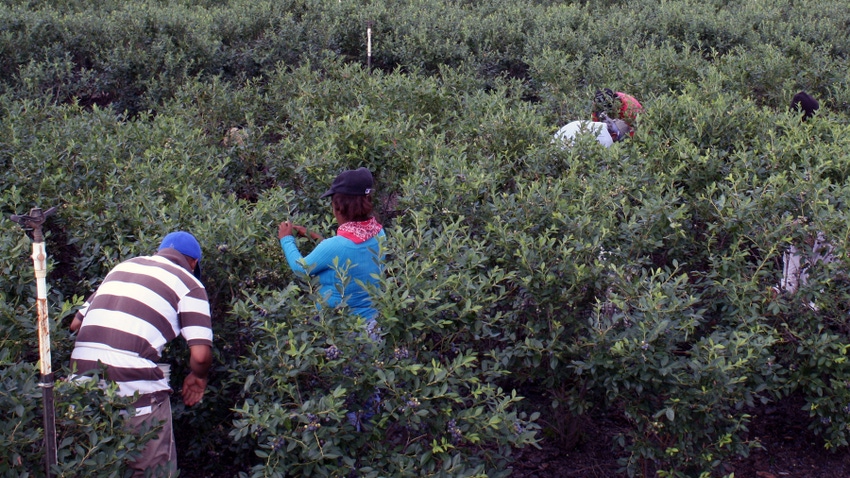April 25, 2023

Last week, the National Council of Agricultural Employers filed a Motion for Preliminary Injunction against the Department of Labor’s new Adverse Effect Wage Rate, alleging DOL actions on the matter are an abuse of the DOL secretary’s discretion.
"This regulation continues the DOL’s abusive practice of mandating minimum wages farmers and ranchers must pay under the Temporary H-2A Agricultural Program completely disconnected from the market for agricultural labor anywhere on the planet,” said Michael Marsh, NCAE president and CEO, in an April 24 statement.
Marsh went on to say the regulation continues to misuse the USDA Farm Labor Survey “to establish wage rates, but it also piles on farm and ranch families by requiring nonfarm wages drawn from the Bureau of Labor and Statistics for simple, routine, on farm activities, jobs which have been performed on American farms and ranches for generations. Some farmworker wages will more than double under this new rule forcing family operations out of business. And, of course, these mandated minimum wages impact all farm wages, whether employers use the program or not.”
In the April 24 statement, NCAE said DOL was provided comments to point out that the department’s regulations and continued misuse of survey instruments not designed to capture actual agricultural wage rates were forcing America’s food production to move to overseas competitors.
NCAE said “today more than 60% of the fresh fruit and more than 35% of the fresh vegetables consumed in the U.S. are being produced by overseas competitors.”
Marsh said NCAE has repeatedly petitioned the secretaries of labor to decide an adverse effect to the domestic workforce due to the employment of H-2A workers prior to mandating AEWRs.
“Sadly, for America, the DOL has turned its back on commonsense and the American people. The economic evidence overwhelmingly supports our cause and the fact that DOL’s estimates of cost impact are short by hundreds of millions, if not ultimately, billions of dollars! These are incredible errors,” Marsh said. “Having been slammed face first into the dirt by the Executive Branch, NCAE and our farm and ranch family members had no other choice than to turn to the Judiciary hoping the Court will hear and recognize the importance of our pleas for relief.”
The NCAE legal challenge is being brought in Federal District Court in Tampa, Fla., on behalf of NCAE and several named NCAE member plaintiffs.
In an April 24 statement, the Georgia Fruit and Vegetable Growers Association urged the Georgia Congressional Delegation to support the Congressional Review Act resolutions to reverse changes to the DOL H-2A regulation, entitled, “Adverse Effect Wage Rate Methodology for the Temporary Employment of H-2A Nonimmigrants in Non-Range Occupations in the United States.”
In a letter to the Georgia delegation, Chris Butts, GFVGA vice president, said the regulation would further raise the cost of fruit and vegetable production in Georgia.
“Fruit and vegetable production in Georgia, with an annual farm gate value of over $1.5 billion, is heavily dependent on H-2A labor. Georgia producers face a 14% increase in the Adverse Effect Wage Rate in 2023. With over 32,000 H-2A workers employed in the state in 2022, conservative estimates are that this increase will cost Georgia growers over $120 million in increased wages this year alone. This comes on the heels of record increases in input costs, inflation, and supply chain disruptions. As price takers, farmers will not be able to offset these increased costs by raising prices. Instead, these wage increases will ultimately result in decreased production of fresh fruits and vegetables in Georgia and in increased reliance on foreign countries for our food.”
Read more about:
LaborAbout the Author(s)
You May Also Like




